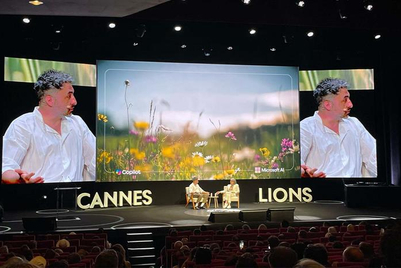
The long battle between technology companies and media enterprises has intensified further, with Google now contending that the proposed News Media Bargaining Code framed by the Australian Competition and Consumer Commission, will lead to a subpar experience on the platform for consumers.
While the Australian industry watchdog and tech platforms have been at odds for at least a couple of years, a post this morning from Google Australia's managing director, Mel Silva, appears to suggest the behemoth is getting stuck in for a protracted battle.
"A proposed law, the News Media Bargaining Code, would force us to provide you with a dramatically worse Google Search and YouTube, could lead to your data being handed over to big news businesses, and would put the free services you use at risk in Australia," Silva says in the post. "The law would force us to give an unfair advantage to one group of businesses—news media businesses—over everyone else who has a website, YouTube channel or small business."
Silva's comments follow the July release of the Australian government's proposed code that would see Google and Facebook brought into negotiations to pay media companies for their use of the news content those media companies generate—with binding final-offer arbitration as a last resort. The ACCC stated that the code is necessary to address "acute bargaining power imbalances between Australian news businesses and Google and Facebook".
Specifically, Silva's claim about "unfair advantage" refers to a portion of the proposed rule that says digital platforms would be required to notify news media businesses in advance about changes to algorithms controlling the ranking of content in search results.

Neither Google nor Facebook, which argued that the plan is discriminatory, are taking the new code lying down.
"News media businesses alone would be given information that would help them artificially inflate their ranking over everyone else, even when someone else provides a better result," Silva noted. "We’ve always treated all website owners fairly when it comes to information we share about ranking. The proposed changes are not fair, and they mean that Google Search results and YouTube will be worse for you."

Rather than engage directly with news media companies, Silva's letter and another post by Gautam Anand, head of YouTube APAC, squarely target the impact the draft regulation would have on consumers. "This law wouldn’t just impact the way Google and YouTube work with news media businesses—it would impact all of our Australian users," Silva wrote.
Meanwhile, Anand, in his note, contended that the proposed law would benefit news media companies, but in turn, would impact a broad swathe of Australians. "The imbalances created by this proposed law could potentially affect all types of Australian creators, far beyond those who focus on news: from vloggers, to educational creators, to music artists and beyond," he said. "We are doing everything we can to push for changes and make sure YouTube in Australia remains a place where anyone can connect to an audience or build a business, not just a few large media companies."
The proposed code is the latest result of the ACCC's hardline stance against the tech giants, which has seen the government seek to to curb the platforms' power with stricter regulation on the use of content. "Digital platforms would be required to give news media businesses 28 days’ notice of algorithm changes likely to materially affect referral traffic to news, algorithm changes designed to affect ranking of news behind paywalls, and substantial changes to the display and presentation of news, and advertising directly associated with news," the proposed law states. "In addition, the platforms must give news media businesses clear information about the data they collect through users’ interactions with news on digital platforms."
The platforms would also be required to publish proposals for how they would recognise original news content on their services. They would also need to provide news media businesses with flexible user comment moderation tools, including an ability to “turn off” comments on individual stories they post to digital platforms. The minimum standards would also allow news media businesses to prevent their news content being included on any individual digital platform service.
Breaches of these standards would be subject to potential enforcement action by the ACCC.


.jpg&h=334&w=500&q=100&v=20250320&c=1)


.png&h=334&w=500&q=100&v=20250320&c=1)




.png&h=334&w=500&q=100&v=20250320&c=1)





.png&h=268&w=401&q=100&v=20250320&c=1)
.png&h=268&w=401&q=100&v=20250320&c=1)

